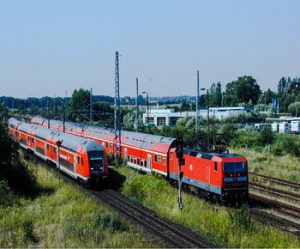Human beings have needs. Some are luxuries while many are basic necessities that we all need in order to live. Aside from food, clothing, and shelter, sleep is also a basic need that makes us function well in society. Aside from its restorative properties, one feels better and more alert after a good night’s sleep. Whether you are still a young child, a student, or an adult with work and other responsibilities, sleep is crucial in enabling us to do things efficiently most of the time. Unfortunately, because of the many distractions that we now have in the form of smartphones, other tech gadgets, and the mere existence of the web, we continually lose sleep day in and day out because of our own doing.
 Meanwhile, some suffer from more serious and troublesome medical conditions like sleep disorders and the outcome may at times be disastrous. One of the most recent tragedy is the collision of two NY trains that resulted in the death of one individual and injuring over 100 passengers of the unfortunate trains. According to investigations, undiagnosed sleep apnea is the culprit why such a misfortune happened.
Meanwhile, some suffer from more serious and troublesome medical conditions like sleep disorders and the outcome may at times be disastrous. One of the most recent tragedy is the collision of two NY trains that resulted in the death of one individual and injuring over 100 passengers of the unfortunate trains. According to investigations, undiagnosed sleep apnea is the culprit why such a misfortune happened.
Two commuter train crashes in the New York City metropolitan area are being blamed on undiagnosed sleep apnea, according to an announcement yesterday from the National Transportation Safety Board. Investigations have determined that the conductors in both accidents—a September 2016 New Jersey Transit crash in Hoboken, New Jersey, that killed one person and a January 2017 Long Island Railroad derailment in Brooklyn that injured more than 100—fell asleep on the job due to the chronic condition.
Sleep apnea is a very common condition, and it’s easy for doctors to spot, says Allan Pack, MD, professor of medicine at the University of Pennsylvania’s Center for Sleep and Circadian Neurobiology. (Dr. Pack was not involved in the investigations above, and has not evaluated the train conductors.)
But even though knowledge about the condition is growing, says Dr. Pack, many people don’t realize they have a problem—and so it frequently goes undiagnosed and untreated. Here’s what he wants people to know about sleep apnea.
(Via: http://www.health.com/sleep/sleep-apnea-train-crashes)
Aside from the deadly breathing pauses sleep apnea sufferers face each day, the continuously interrupted sleep they experience on a daily basis is a major bummer that left many chronically sleep-deprived for a long time. It’s too bad for people who have to work with machines and equipment that may endanger their lives or that of others or drive vehicles that can pose a hazard in the streets. It’s simply what happened to these trains that collided with one another. Most of the time, people ignore the symptoms and go on with their lives not knowing how much of a danger they are to the people around them because they lack sleep that can help them fully-function at work.
The board plans to hold a Feb. 6 meeting on the September 2016 crash in Hoboken, New Jersey, that killed one person and injured more than 100 others, and the January accident in Brooklyn that left more than 100 people with non-life-threatening injuries.
Both engineers had no memory of the crashes and were severely overweight. The Centers for Disease Control says being overweight puts individuals at a higher risk of sleep apnea.
The disorder, characterized by shallow or interrupted breathing during sleep, often goes undiagnosed and can leave sufferers fatigued during the day, according to the U.S. National Institutes of Health.
The safety board said the brakes were working on the New Jersey Transit train traveling at 8 miles (13 km) per hour 38 seconds before the crash. The train then accelerated to 21 mph at impact, twice the speed limit, and emergency brakes were applied one second before the crash.
The engineers on-board those trains were later diagnosed with severe sleep apnea and obese as well. They admitted not remembering anything before the crash even if they were traveling at twice the normal train's speed. Hence, the rest of the engineers likewise underwent sleep testing and some of them turned out to be suffering from sleep apnea as well and are now getting treated. They don’t even have to try CPAP if they don’t like it since there are other options in the form of anti-snoring mouthpieces that mimics the effect of CPAP and save them from the woes of sleep apnea. We may underestimate the power of sleep but the lack of it can have a number of crazy and terrible consequences, which in this case led to the untimely demise of one unfortunate passenger.
Sleep Loss Caused Trains To Collide is courtesy of The I Am Not An Artist Blog
source https://www.iamnotanartist.org/sleep-loss-caused-trains-to-collide/

No comments:
Post a Comment